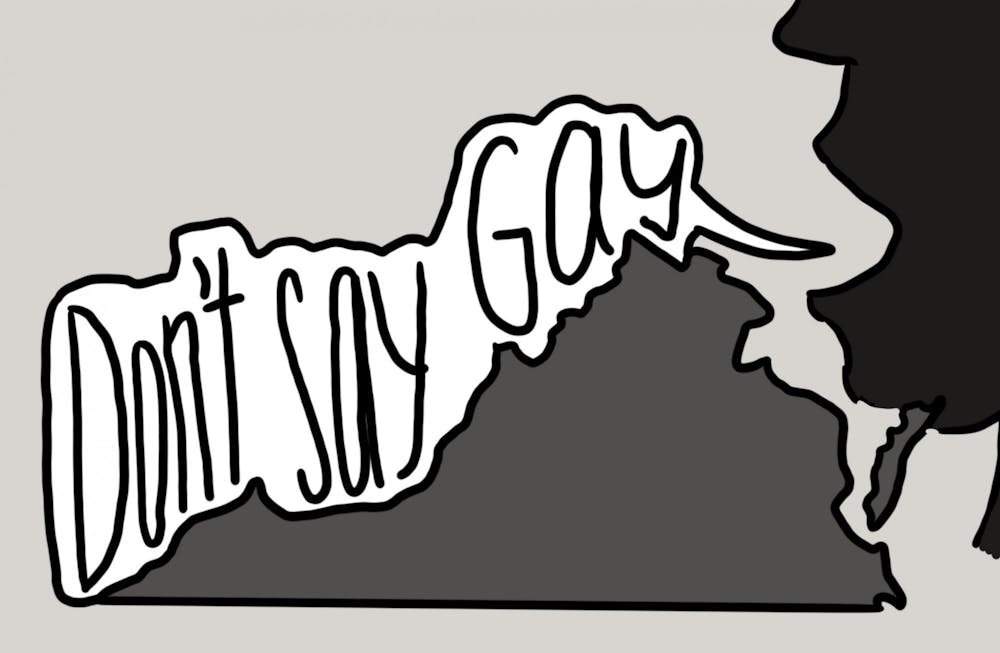Governor Glenn Youngkin signed into law SB 656 a few months back. The legislation requires Virginia teachers to identify “sexually explicit” content within their curriculums and mandates that principals notify parents about the explicit content, prior to their classroom introduction. In accordance with the law, the Virginia Department of Education released its model guidelines for sexually explicit instruction this past month, and its language has raised serious concerns. By referencing an obviously outdated section of Virginia code, the new law creates the potential for all content mentioning same-sex relationships — in all grade levels — to require parental approval, effectively robbing Virginia students of the diverse and inclusive education to which they are entitled.
In part, the new law defines “sexually explicit content” as representations of pornography, coprophilia, bestiality and fetishism as well as any form of “sexual conduct” outlined in a specific subsection of Virginia code, § 18.2-390. This section of Virginia code happens to include the term “homosexuality” in its list of inherently sexual conduct. Which means — as the Pride Liberation Project deftly points out — the law could be interpreted to categorize all mentions of people in same-sex relationships as “sexually explicit” content — and thus require parental approval to be taught. Imagine a Virginia where an AP Government teacher has to send home a waiver before lecturing on the Obergefell v. Hodges supreme court case — that is the Virginia we could currently be living in.
If any of this sounds eerily familiar to you, it is because earlier this year Florida Governor Ron Desantis signed a bill that famously gained traction as the “Don’t Say Gay” bill. Among other things, the bill “prohibit[s] classroom discussion about sexual orientation or gender identity” in kindergarten through third grade. While that bill was very open about its intent to ban certain kinds of classroom conversations and very limited in the age demographic it targeted, the bill that was signed in our state was far more clandestine in its efforts and affects students at every single grade level. Virginia’s version of the “Don’t Say Gay” bill is much farther reaching and — if teachers can’t get a whole bunch of waivers signed — it could be a lot more destructive.
It’s hard to say with certainty that further erasure of the LGBTQ+ narrative from school curriculums was an intended effect of this law. However, given the actions of Republican controlled state legislatures across the country, it isn't crazy to think that this was a concerted effort on the part of Virginia Republicans to exacerbate the marginalization of Virginia’s LGBTQ+ youth. When asked if the Pride Liberation Project was correct in their interpretation of the new law, a spokesperson for Youngkin’s department of education declined to directly answer the question. So, at the very least, it seems Virginia conservatives can’t be bothered to care about the anti-LGBTQ+ effects of the legislation they pushed through our government.
One thing I can say with certainty is that straight parents shouldn’t get to opt students out of classroom content simply because it references “homosexuality.” Are we going to start handing out waivers to gay parents so they can sign-off on any content that mentions straight couples? At the heart of this injustice is the notion that heterosexual relationships are permitted, but relationships involving same-sex partners are inherently explicit. No student in Virginia will have their educational experience enhanced by these discriminatory guidelines, but gay youth will have to suffer with the knowledge that their peers can opt out of any content relating to their sexuality — which the state has now deemed intrinsically inferior.
Schools exist to give kids the tools necessary to change the world. This will become fundamentally impossible if parents are “empowered” such that they can exclude any competing worldviews from the minds of their children. Diverse and inclusive curriculums aren’t only vital to the success of marginalized students — they are also the bedrock of a more equitable society, a society destined to break the cycles of bigotry perpetuated by generations past.
Unfortunately for the students of the Commonwealth, the Youngkin administration — in collaboration with Virginia Republicans — appears to have declared a war on love, on acceptance and on progress. If they have it their way, we will begin raising a new generation of Virginians who are completely comfortable excluding other people because they are different, or opting out of conversations that don’t affirm their narrow-minded worldview. We cannot let that happen. So next time you vote, think about the Virginia you want our children to inhabit. It should be a place where inclusive curriculums empower students to love one another — because, last time I checked, Virginia is for Lovers.
Nathan Onibudo is a Viewpoint Writer for The Cavalier Daily. He can be reached at opinion@cavalierdaily.com.
The opinions expressed in this column are not necessarily those of The Cavalier Daily. Columns represent the views of the authors alone.







